Sunday, June 05, 2022
View Larger +
Robert Whitcomb, Columnist
“If you were a nuclear superpower
And I were a buffer state
I’d cling like dirt to your arable skirt
Where the Cruise proliferate,
And my Early Warning system
Would mesh with the nerve ends of yours….’’
GET THE LATEST BREAKING NEWS HERE — SIGN UP FOR GOLOCAL FREE DAILY EBLAST
From “Early Warning,’’ by John Levett (born 1950), English poet
“Lend Money to an Enemy, and thou’lt gain him, to a Friend, and thou’lt lose him.
— Benjamin Franklin (1706-1790), in Poor Richard’s Almanack in 1740. This was a yearly creation published by the entrepreneur, scientist, diplomat and U.S. Founding Father, under the pseudonym of “Poor Richard” or “Richard Saunders,” from 1732 to 1758.
“Everybody is packed close together; almost everybody knows somebody else. An administrator – the governor, say – is at the beck and call of anybody; he must go and see for himself in an emergency, because everything is within fifty miles of his office.’’
— John Gunther on Rhode Island in Inside U.S.A. (1947)
xxx
View Larger +
PHOTO: file
Inevitably, some residents of New England suburban or exurban areas are duking it out with solar-energy developers. The residents complain that too much open land and woods are being taken for the solar arrays near them. Two recent hot spots for these fights are Johnston, R.I., and cranberry-bog country in Wareham and Carver, Mass.
Well, the world is heating up and the more renewables we use the worse it is for such murderous petrostate dictators as Vladimir Putin. And bear in mind that much land being eyed for solar arrays might instead be turned into housing projects if the solar is blocked. Most locals would probably hate that even more than “solar farms,’’ in part because local property taxes would have to go up to pay for public services.
The saddest thing in this is cutting down woods to make way for the arrays. Of course, trees are huge absorbers of the carbon dioxide spewed out by our burning fossil fuel. But putting up solar arrays more than makes up for the loss of the equivalent space in woodland in terms of CO2 control, at least given current and projected technology and (wasteful!) electricity use. (The Ukraine war and the energy crisis it has caused is speeding renewable-energy research and development.)
John Reilly, co-director of MIT’s program on the science and policy of global change, estimated for WGBH how much power would be generated if about 2.5 acres were clear cut to put up solar panels. WGBH reported: “He figured out you’d make up for all the carbon stored in those trees in just 46 days, if you were preventing that same amount of energy from being generated by carbon-emitting coal, or 23 days, if you were offsetting natural gas.’’
He said: “’There is a carbon loss from the trees, but it’s made up fairly quickly. You’re going to operate that solar panel for 20 years.”’
Of course, the flora and fauna in woods should be protected as much as possible amidst the urgent need for us to burn much less natural gas and oil. Still, there’s a little bit of irony here. Much of the woodland that neighbors are trying to protect was open farmland in the early and mid 19th Century, before competition from Midwest farms and the rise of manufacturing in New England drew most people off the farms and the woods grew back. Take a look at some old pictures.
In any case, solar developers should make sure that there’s vegetation (to give off oxygen and provide a bit of ecosystem for birds and animals) under the arrays and not just barren dirt. And hire goats to keep it from getting too high?
There will be painful, or at least inconvenient tradeoffs as we wean ourselves off the still necessary poison that is fossil fuel.
We certainly could do much more to minimize the aesthetic pain of some neighbors by putting solar panels on many more buildings large and small instead of on land. Use, for example, those vacant parking lots at dead malls and elsewhere for solar arrays, while waiting for new clean-energy sources, be it hydrogen, fusion or something else to come on line. There’s probably a recession coming soon, slowing building construction and cooling property-price inflation. Take advantage of that to take more vacant urban and suburban land for solar?
Hit this link for the WGBH trees vs. solar story:
xxx
The skies around Greater Boston turned a weird Impressionist yellow-green on May 31 as a cold front suddenly moved in to blow pollen off the trees. It was beautiful and a reminder of nature’s fecundity (especially in late spring), if a bit ominous-looking. Easier to appreciate while not sneezing.
View Larger +
Seaglider PHOTO: Regent
New Industry for Rhode Island?
Regent Craft, a Boston-based venture capital-backed company, is collaborating to produce a new kind of all-electric passenger-carrying boat/plane called a “seaglider’’ that would move over the water at up to 180 mph. (I suspect that the ticket prices would be steep; this would be a high-end service.)
Would it be worthy of the $13 million in Rhode Island state tax credits that Regent seeks in setting up an operation with hundreds of employees at Quonset — say more worthy than the tens of millions in state incentives sought for a soccer stadium and associated development in Pawtucket?
It’s too early to know but it sounds exciting.
Bristol, R.I.-based Moore Brothers Co., a manufacturing, research and development firm, is collaborating with Regent Craft to manufacture these vehicles at Quonset to provide service on fairly short-haul coastal routes such as Boston to Providence and Newport to New York. Manufacturing, especially high-tech manufacturing like this, pays much higher salaries than most service jobs, which is what the Pawtucket project would entail after temporary construction jobs.
“Seagliders’’ would not go into regular commercial production until 2025, but with a prototype to be ready later this year. Still, it sounds a lot more solid than, say, 38 Studios, the defunct video-game company that the State of Rhode Island disastrously backed.
xxx
View Larger +
PHOTO: file
Here’s some news from left field that could be another nail in the coffin of gasoline-powered cars:
It’s the “wire harness,’’ an inexpensive part used to bundle cables in vehicles powered by internal combustion. They’re made from wire, plastic and rubber with lots of low-cost manual labor.
As it turns out, a major part of the world’s production of these things had been in Ukraine before Putin’s bloody invasion of that valiant nation, which has halted much of the production. Still, some harness manufacturing is continuing amidst the Russian assault.
Now, auto-industry experts tell Reuters, the supply crisis could push automakers to “switch to a new generation of lighter, machine-made harnesses designed for electric vehicles.’’ Ukraine, which has many very able manufacturing companies and workers, can adapt to that.
xxx
I hope that we aren’t entering a new age of intense “ticket-balancing,’’ the tradition, especially in heavily urbanized Northeast and Upper Midwest states, of usually putting representatives of each major ethnic group on the ballot, too often regardless of comparative qualifications. In New York City, political party leaders for many years used to worship the “Three I’s” – Italy, Ireland and Israel – in picking candidates. Now “balancing’’ in some places may include throwing in a gay person and even a trans one in addition to members of whatever newly arrived ethnic groups are growing most rapidly?
This is not always the best way to choose candidates!
xxx
With a proviso in federal law to protect current or former students from fraud, the Biden administration is rightly erasing $5.8 billion in federal student loans owed by around 560,000 former students of one of those corrupt for-profit college companies, Corinthian Colleges Inc. But a general forgiveness of student loans would be a very big mistake. It would undermine an important bulwark of our economy – the expectation that loans will be repaid, that promises on legal documents mean something. The government should not be encouraging “moral hazard” — lack of incentive to guard against risk when one is protected from its consequences.
If only more of these people hadn’t chased the chimera of a “college degree’’ and had opted instead to get vocational training to take well-paying jobs in the essential and always-in-demand trades instead – electrician, plumber, carpenter, etc.
xxx
View Larger +
President Joe Biden PHOTO: White House
President Biden and his advisers must have their reasons for doing so, but many of us are mystified why they keep telling Putin what the U.S. won’t do, such as giving the Ukrainians certain missiles. It would seem wiser to keep the dictator guessing. Make life as difficult as possible for him and his army, rife with rapists, torturers and thieves, as they go about their business of mass-murdering civilians and leveling cities.
The Plastics Problem
Plastics (made from oil!) recycling is, to a large extent, a joke, argues a very persuasive article in The Atlantic. I’ve always been skeptical about it myself. And I’ve long worried about the amount of fossil fuel used to heat the water to clean plastics and other recyclable and allegedly recyclable materials before throwing them into the recyclables bin. When you look at the science, some recycling seems to be empty virtue signaling.
The authors are Judith Enck, a former EPA regional administrator, the president of Beyond Plastics and a visiting professor at Bennington College, and Jan Dell, a chemical engineer and the founder of the Last Beach Cleanup.
The central problem, they note, is that, unlike metal and glass, plastics aren’t inert. They also, of course, poison the environment in varying degrees while being all so useful.
The authors conclude:
“Proven solutions to the U.S.’s plastic-waste and pollution problems exist and can be quickly replicated across the country. These solutions include enacting bans on single-use plastic bags and unrecyclable single-use plastic food-service products, ensuring widespread access to water-refilling stations, installing dishwashing equipment in schools to allow students to eat food on real dishes rather than single-use plastics, and switching Meals on Wheels and other meal-delivery programs from disposables to reusable dishware.’’
Hit this link for the article:
xxx
Gun fetishists (concentrated, like so many of our national pathologies, in the South) like to gloat that Chicago, Philadelphia and a few other Northern cities have high murder-by-gun rates despite relatively (by American standards) strong local gun-control laws in these cities and their states. They carefully don’t note that most of the guns are trafficked from Red States, which have weak or virtually nonexistent gun laws. They export their barbarism around the country.
xxx
View Larger +
U.S. Senator Ted Cruz (R-TX)
I heard the repulsive Texas Sen. Ted Cruz, in refusing to answer a reporter’s question about guns, in the wake of the murder of 19 schoolchildren and two teachers in Uvalde, snap that “this is the freest, most prosperous country in the world.’’ No it ain’t, although since most Americans don’t know much about the rest of the world you can generally get away with saying things like that, as you can when you say that “America has the best health-care system in the world.’’ Far from it.
The Human Freedom Index report ranked America as the 15th “freest country. Meanwhile, the Legatum Prosperity Index ranked us 18th.
See:
https://worldpopulationreview.com/country-rankings/freedom-index-by-country
https://worldpopulationreview.com/country-rankings/legatum-prosperity-index
What we do have is a lot of economic and cultural dynamism and probably the world’s highest velocity of personal and economic re-invention in a huge country with a vast range of natural resources.
xxx
There are irritating things about using Zoom – the bad connections, jarring background noises, distracting images and so on. But sometimes there are amusing surprises in encountering people you hadn’t seen for many decades. I watched as an observer the other night a reunion of about 30 people in a club of which I was a junior member 60 years ago. I was amused to see how faces had sort of melted with age and, even more so, by the persistence of personality. One guy I knew way back then almost always seemed to be grumpy, another almost always cheery. They are the same now.
Weekly Context
The record for average inflation-adjusted U.S. gasoline prices was set in June 2008 at $5.38 a gallon.
The European Union’s annualized inflation rate was estimated at 8.1 percent for May 2022, up from 7.4 percent in April.
World gasoline prices:
Murderous states:
America’s Glamorous Ax Man
Anyone interested in some of the corporate policies and decisions that have led to the hollowing out of much of the American middle class, and the slowing of engineering innovation, in the last 40 years would do well to read David Gelles’s book The Man Who Broke Capitalism. It’s about Jack Welch (1935-2020), the charismatic, once lionized, and ruthless user of creative accounting, massive layoffs and plant closures who ran General Electric in 1981-2001. Some of his policies almost destroyed the company, but well after he retired.
He loved going on television.
“Neutron Jack’s’’ obsession with goosing quarterly earnings to lift GE’s stock price certainly paid off for a long time for GE shareholders and senior executives. Until it didn’t.
Mr. Gelles noted that Welch “emerged as sort of this imperial executive and helped define what I think is still with us today in the form of a certain amount of CEO worship.”
Related Articles

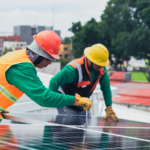


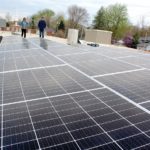
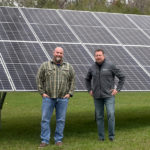

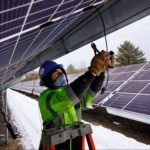
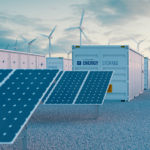
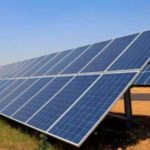





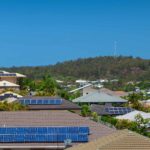
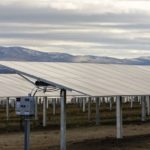




Recent Comments